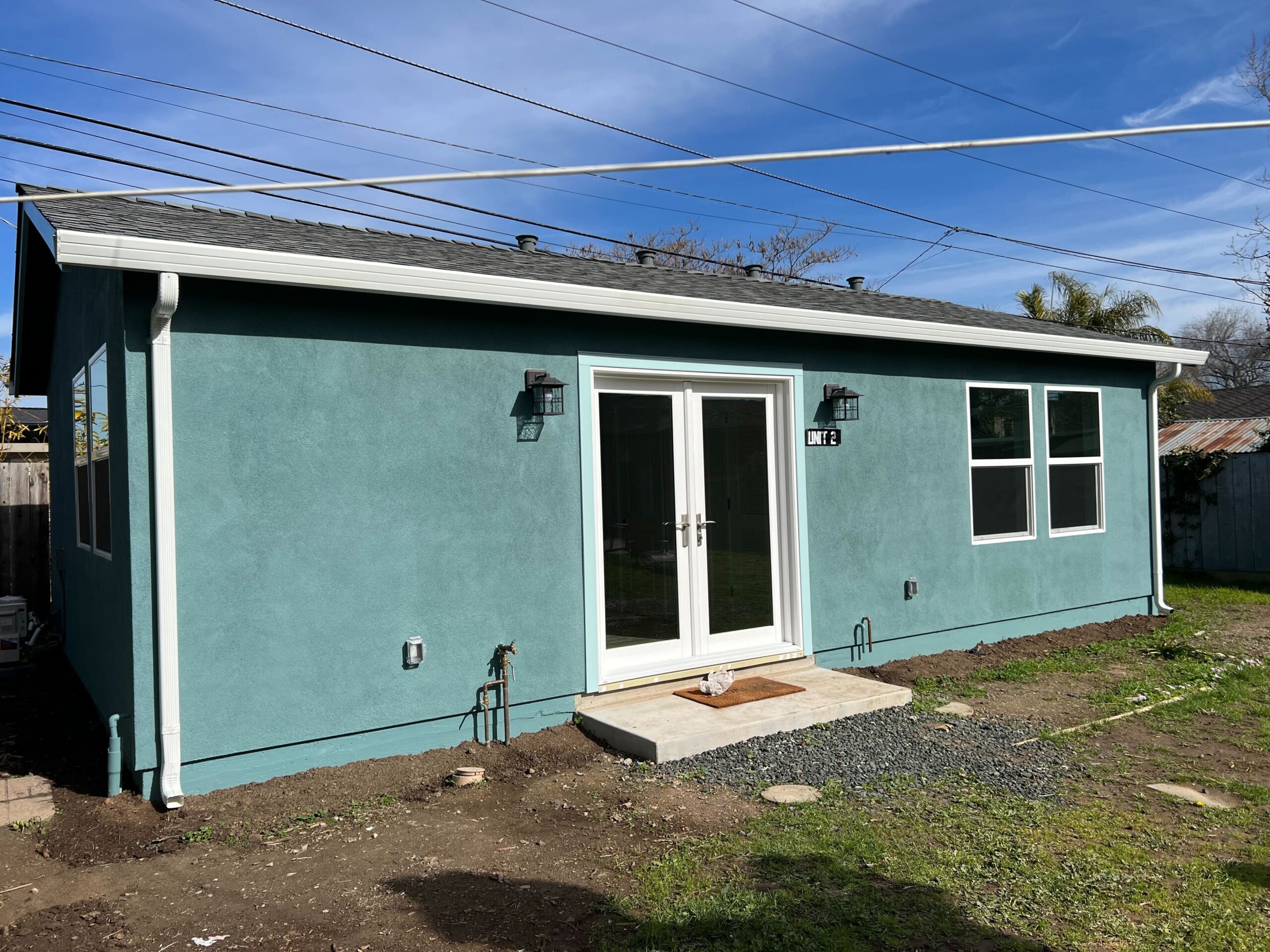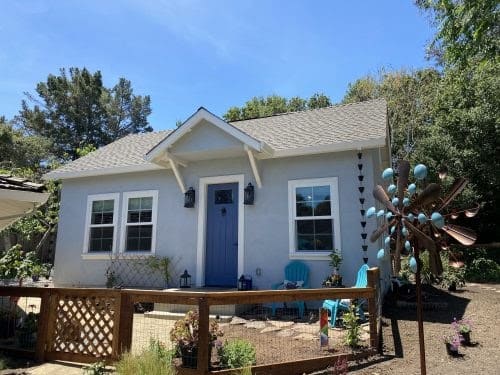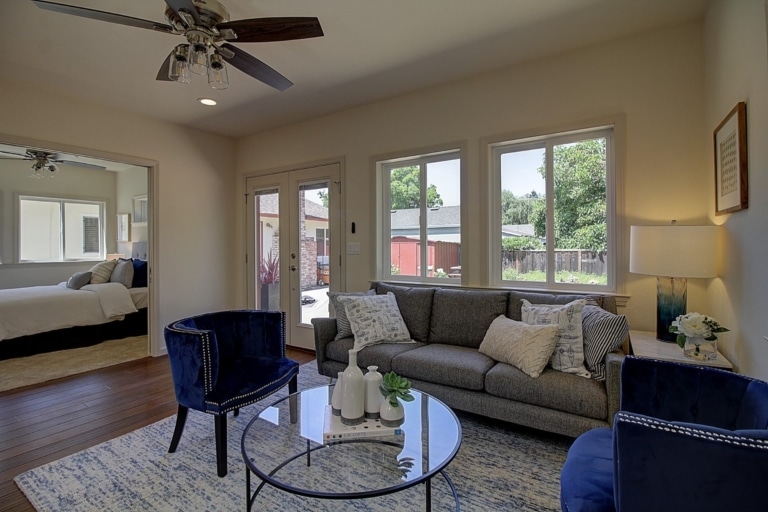The Potential Behind ADU Construction
ADUs or accessory dwelling units are secondary residential houses that are located on the same property as a primary dwelling. They provide additional living space and can serve various purposes. Here are some of the things to consider when looking into ADU construction.
Types of ADUs
There are a few different kinds of ADUs that you can build. They are:
- Detached ADU: these are separate structures that are independent of the primary dwelling.
- Attached ADU: attached ADUs are units that are physically connected to the main residence. They share common walls.
- Converted ADU: converted ADUs involve transforming existing space within the primary dwelling, such as a basement, attic, or garage, into a separate living unit.
Zoning and Regulations
Before undertaking an ADU construction, it’s important to understand the zoning regulations and legal requirements set by local authorities. Here are some key things to consider:
- Zoning regulations: check with the local zoning department to determine if ADUs are allowed in your area. Some neighborhoods have specific zoning restrictions or size limitations for ADUs.
- Permitting and approvals: obtain the necessary permits and approvals before starting construction. This typically includes submitting architectural plans, meeting building codes, and complying with safety regulations.
- Setbacks and restrictions: be aware of setback requirements, which specify the minimum distance between the ADU and the property lines or other structures.
These are just some of the laws and codes to consider and follow. If you’re not sure where to start looking for the laws and codes in your area, make sure to consult with a professional ADU construction company such as Acton ADU. We’d be happy to handle everything for you.
Exploring the Architectural Design Possibilities
ADUs offer a range of architectural and design possibilities. Here are some of the possibilities to explore with your design team:
- Layout and floor plans: determine the desired layout of the ADU. Think about the available space and intended use. This can include features such as an open floor plan, multiple bedrooms, a kitchen, and a bathroom.
- Aesthetics and style: choose a design that compliments the main dwelling and blends well with the surrounding environment. Consider architectural styles, exterior finishes, and landscaping to create a cohesive look.
- Space optimization: maximize the use of space by incorporating innovative storage solutions, multi-purpose furniture, and efficient layouts. Explore ideas like built-in shelving, loft areas, or fold-away furniture.
Cost Considerations
If you are planning for an ADU construction project, then you can’t forget to budget it.
- Construction costs: the cost of building an ADU can vary depending on factors such as size, complexity, materials used, and location. Obtain estimates from contractors or architects to understand the potential expenses.
- Financing options: explore different financing options such as personal savings, home equity loans, construction loans, or ADU-specific financing programs. Evaluate the financial possibilities and determine the best approach for your situation.
- Operating costs: consider ongoing expenses such as utilities, maintenance, insurance, and property taxes. ADUs may have a separate utility connection and additional maintenance requirements that should be factored into your budget.
By understanding the different types of ADUs, zoning regulations, architectural possibilities, and cost considerations, you will be better equipped to make informed decisions and successfully undertake an ADU construction project.
Planning and Preparation for ADU Construction
Planning and preparation are crucial steps in the ADU construction process. Below we will explore key considerations when preparing for ADU construction, including property assessment and contacting professionals to help you with your ADU construction.
Assessing the Property
Before proceeding with ADU construction, it’s important to make sure that your property is suitable for ADU construction. Make sure to consider the following factors:
- Zoning and regulations: as we mentioned before, make sure to verify that our property is zoned for an ADU.
- Space availability: assess the available space on your property to determine if it can accommodate an ADU. Make sure you know the size and layout of your available space and any limitations that might hinder or stop construction. This includes what might be underground, such as a septic tank or other pipes and wiring that might get in the way.
- Access and infrastructure: evaluate the accessibility of the property for ADU construction. This would include utilities, water supply, sewer connections, and possible parking requirements.
- Environmental considerations: Assess the impact of the ADU on the surrounding environment. This would include factors such as tree preservation, drainage, and potential effects on neighboring properties.
Engaging Professionals
It’s important to hire ADU professionals who can provide expertise and guidance to make sure that your ADU construction is successful and on schedule. Below we’ll go into detail about the many professionals that help take on a task like ADU construction.
Talk with an architect that specializes in ADU design. They can help you optimize the use of space and make sure that everything stays compliant with building codes and regulations. They will help design an ADU constriction that’s functional and aesthetically pleasing.
Hiring an experienced contractor with expertise in ADU construction is important. They will oversee the construction process, manage the subcontractors, and make sure that the project is completed efficiently and to the required standards.
Depending on your specific needs, you’ll need to to consult professionals such as structural engineers, HVAC specialists, or interior designers. They can provide you with expert advice in their respective areas. Or, hire a company that has all of these services ready, like Acton ADU.
When selecting different professionals to help you with your ADU construction, make sure to obtain multiple quotes to compare offerings, timelines, and the scope of services offered. Consider their experience, reputation, and previous ADU construction projects that they have completed.
Make sure that all the professionals you hire are properly licensed, insured, and bonded. This will provide you with protection and peace of mind throughout the ADU construction process.
Planning and preparing for ADU construction involves assessing the proper suitability and contacting the right professionals. By carefully evaluating your property and enlisting the expertise of qualified professionals, you can lay a solid foundation for a successful ADU construction project.
Incorporate Energy Efficient Solutions
Incorporating sustainable and energy-efficient features in your ADU construction is not only environmentally friendly but also offers long-term benefits in terms of energy savings and comfort for the person living in the ADU.
Proper insulation is important for minimizing heat transfer and maintaining comfortable indoor temperatures. Make sure to incorporate high-quality insulation materials in walls, floors, and ceilings to reduce energy loss. Similarly, make sure you opt for energy-efficient windows and doors with good insulation properties because this will also help reduce energy loss.
The proper lighting and HVAC systems will also go a long way in maintaining green practices. Consider a smart thermostat so you can set a timer for heating and cooling the space. Especially if no one is in it for several hours, you can set it to an “eco mode,” and it will help you save energy and reduce utility bills. LED bulbs and fixtures can also help save energy. LED lights consume less energy, have a longer lifespan, and provide more than adequate lighting, all while reducing your energy bill.
If you’re in an area that gets a lot of sun, it might be cost-effective to invest in solar panels for your ADU construction. Solar panels can generate clean and sustainable electricity, which will save you money in the long run.
Ask your ADU construction project manager about the kinds of materials they will use and if there are any recycled or sustainable materials that they can substitute. And while discussing the design of the ADU.. Having your ADU construction built in a way that reduces the need for artificial lighting can help reduce energy consumption.
Lastly, when furnishing your ADU, look for appliances that are Energy Star rated. These appliances consume less energy while delivering the same performance as their conventional counterparts.
Incorporating sustainable and energy-efficient features in your ADU construction not only reduces environmental impact but also contributes to long-term energy savings and increased comfort for occupants. By implementing these strategies, you can create a more sustainable and energy-efficient living space.
Pre-Approved ADU Construction
A pre-approved ADU is an ADU that has been reviewed and approved by the local planning or building department. The purpose of pre-approved ADUs is to streamline the process of obtaining permits for ADU construction by providing a set of pre-designed plans that meet the specific requirements and regulations of the local jurisdiction. These designs have already undergone the necessary review and meet the building codes and zoning requirements applicable to ADUs in that area. However, note that you cannot make changes to pre-approved plans without losing their status.
By using a pre-approved ADU design, homeowners can save time and potentially reduce costs associated with custom architectural plans and the permit approval process. Because it provides a standardized solution that is known to comply with local regulations, it’s easier and faster to obtain the necessary permits for construction.
It’s important to note that the availability and specifics of pre-approved ADUs vary from one jurisdiction to another. Some cities may have pre-approved designs available for homeowners to choose from, while others may provide design guidelines that can be followed to ensure compliance with local regulations. It’s recommended to check with the local planning or building department to determine if pre-approved ADUs are available and what the specific requirements are in your area. Additionally, almost no plan is complete. And few, if any, contain the spects for interior design. So, working with an ADU construction company will be critical to approach any project wholistically.
If you live in Cupertino, California, or San Jose, California, Acton ADU has pre-approved ADUs that you can get built in your backyard.
Find the Right ADU Construction Contractor
Finding the right and best ADU construction contractor is one of the most important things to ensure that you have a successful and smooth building process. ADUs are a significant investment, so it doesn’t pay to make a mistake. Below we’ll list some tips to consider when selecting a contractor.
Research and Gather Recommendations
Conduct online research and browse through websites, directories, and social media platforms to identify contractors specializing in ADU construction. Ask friends and family or even colleagues who have recently completed ADU construction and have had positive experiences with their contractor.
Check Credentials and Experience
We mentioned this earlier, but it’s important enough to say twice, verify that the contractor is licensed, insured, and bonded. This will make sure that they have the necessary legal requirements and liability coverage. Review their experience in ADU construction. Look for contractors who have a track record of successful ADU projects and can provide references or portfolios of their work.
Request Multiple Quotes
Contact multiple contractors to request detailed quotes for your ADU construction project. By doing this, you will be able to compare pricing, project timelines, and the scope of services that are offered. Be wary of extremely low bids. Look for a balance between investment and quality.
Read Reviews and Testimonials
Read reviews on their website, Google, Yelp, or other places to ensure that they stick to their promises. Make sure to look for reviews that mention their experience working with the contractor, the quality of the work, adherence to timelines, and overall satisfaction.
Review Contracts and Documentation
When getting a contract to sign, review it carefully. Make sure that all project details, timelines, payment schedules, and warranties are clearly outlined and agreed upon. You want to make sure that there will be no hidden fees that could pop up once the ADU construction project is completed.
Communication Responsiveness
During the initial stages, make a note of how responsive the contractor is. Think about their communication skills because prompt and clear communication is vital throughout the ADU construction process.
Trust Your Gut
Lastly, pay attention to your instincts and gut feelings when choosing a contractor. Trustworthiness, reliability, and a good working relationship are essential for a successful project.
Remember that selecting the right contractor for your ADU construction project is an important decision. Take the time to research, compare, and thoroughly evaluate potential contractors to ensure a positive and successful building experience.
Acton ADU
If you’re ready to get started with your ADU construction project, look no further than Acton ADU. We can help your dreams come true. Contact us so you can start talking with an ADU specialist! We look forward to hearing from you.






